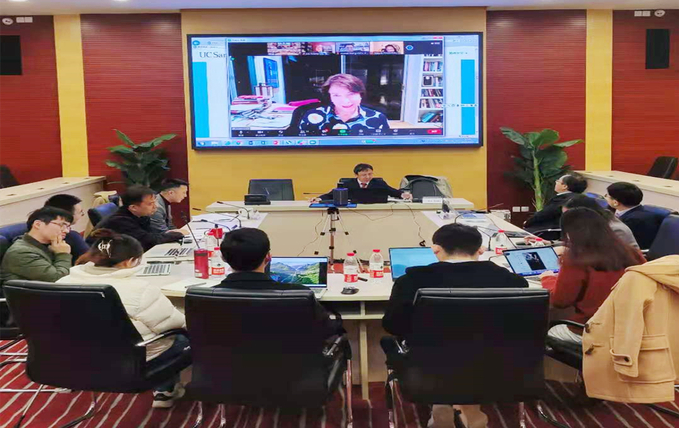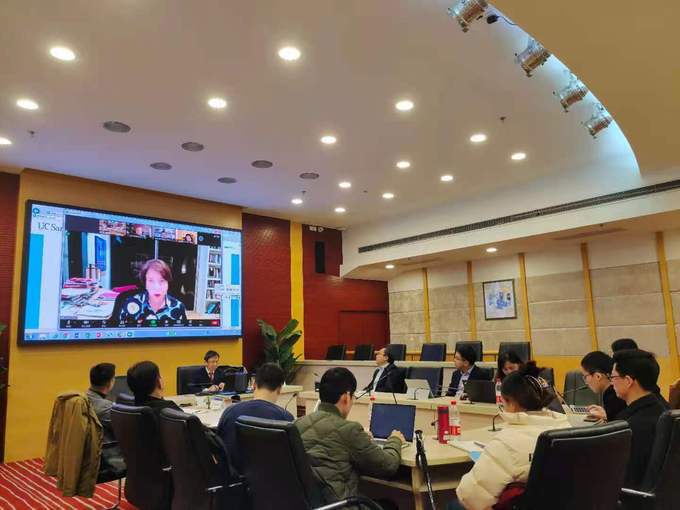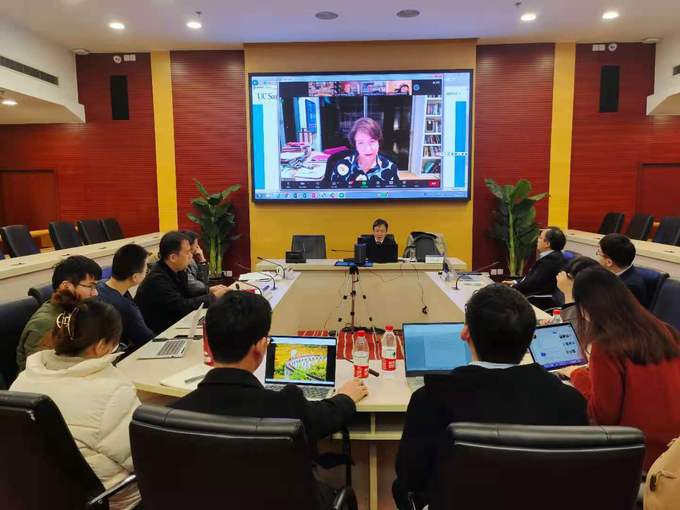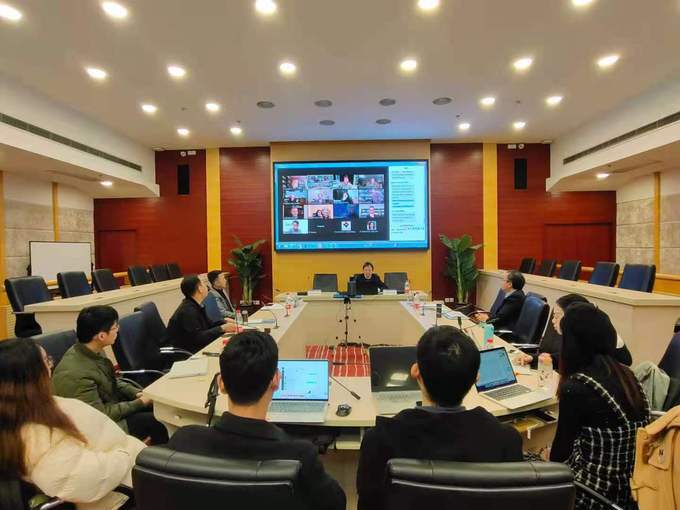On December 7-8, 2021, co-organized by Center for American Studies, Fudan University, 21st Century China Center at UC San Diego School of Global Policy and Strategy, the 3rd China-U.S. University Think Tank Dialogue was successfully convened. Professor WU Xinbo (Director of the Center for American Studies and Dean of the Institute of International Studies at Fudan University), and Professor Susan SHIRK (Research Professor and Chair, 21st Century China Center, School of Global Policy and Strategy, UC San Diego) addressed opening remarks. Professor Caroline FREUND (Dean, UC San Diego School of Global Policy and Strategy) delivered a welcome speech at the opening ceremony of the virtual event. The multiyear dialogues brought together dozens of university-based and other policy experts from China and the U.S., inclusive of academics from Fudan University, Peking University, Tsinghua University, Renmin University of China, Nanjing University, UC San Diego, Princeton University, Yale University, University of Southern California, to engage in dialogues on the critical issues animating the Sino-American relationship, penetrating discussions concerning bilateral relations, with the aim of enhancing mutual comprehension and facilitating the improvement of ties between the two countries in the 21st century as well as the vision of how to preserve a symbiotic relationship whereby any sincere endeavors towards one led to the other.

The academic exchange event convened virtually to dwell on the correlated issues as a two-day webinar to promote the in-depth dialogues, assembled distinguished panelists, featuring Professor WU Xinbo (Director of the Center for American Studies and Dean of the Institute of International Studies at Fudan University), Professor XIN Qiang (Deputy Director of the Center for American Studies at Fudan University),Professor SONG Guoyou (Deputy Director of the Center for American Studies at Fudan University), Senior Fellow ZHAO Minghao (Senior Fellow, Center for American Studies, Fudan University), Professor ZHU Feng (Executive Director, China Center for Collaborative Studies of the South China Sea, Nanjing University), Professor LIU Feng (Department of International Relations, Tsinghua University), Professor WANG Dong (Executive Director of the Institute for Global Cooperation and Understanding at Peking University), Associate Professor LI Chen (International Security and Strategy Program Director at School of International Studies, Renmin University of China), Professor Susan SHIRK (Research Professor and Chair, 21st Century China Center, School of Global Policy and Strategy, UC San Diego), Professor David LAKE (Distinguished Professor of Political Science, UC San Diego), Professor Richard MADSEN (Distinguished Professor of Sociology, UC San Diego), Professor Robert THOMAS (Vice Admiral Thomas, U.S. Navy (retired), Professor of Practice at the School of Global Policy and Strategy, UC San Diego), Professor Tai Ming CHEUNG (Professor, UC San Diego’s School of Global Policy and Strategy and Director of the UC Institute on Global Conflict and Cooperation), Mr. Karl Winfred EIKENBERRY (former U.S. Ambassador to Afghanistan and Lieutenant General, U.S. Army (retired), faculty member of Schwarzman College, Tsinghua University, Beijing, China), Professor Arne WESTAD (Elihu Professor of History at Yale University), Assistant Professor Naima GREEN-RILEY (Assistant Professor at Princeton University, 2022) and Assistant Professor Erin Baggott CARTER (School of International Relations, University of Southern California, Hoover Fellow at the Hoover Institution).

Ensuing the opening sessions, the distinguished panelists evolved around Assessment of China-U.S. Relations during Biden’s First Year, Challenges for China-U.S. Relations, Lessons for China-U.S. Diplomacy from the Past, Opportunities in China-U.S. Relations: How to Promote Cooperation amid Strategic Rivalry, presented academic findings and drew on their research to examine the current administration’s policy, contemporary challenges, ways of promoting cooperation, lessons from the recent and more distant past, as well as prospects for future relations going forward. Experts from both sides shared their perspectives and concerns in an inclusive and positive manner, and engaged in profound deliberations on how China and the United States would properly manage the differences and deepen cooperation in the realms of politics, economy, commerce, science and technology. The academics at the webinar looked ahead to the main factors influencing China-U.S. relations and the "New Normal" in bilateral ties. Both sides should engage in candid and in-depth dialogues on a broad range of issues, raise the prospects for coordination and cooperation in addressing global challenges, international and regional issues of common interest, propose a new framework for shaping and managing bilateral relations for the foreseeable future on a more positive path to stabilize and foster the overall tenor of relationship for mutual benefit.


The China-U.S. University Think Tank Dialogue, signifies the commitment to deepen bilateral ties as the cornerstone of our endeavors to promote collaboration on mutually beneficial issues, embraced in Outcome Lists of President Xi Jinping's State Visit to the United States in 2015 and the Seventh Round of China-U.S. High-Level Consultation on People-to-People Exchange. Towards the attainment and promotion of cooperative academic exchange, the superb dialogue builds an interactive repository for engagement among scholars who undertake research on China-America studies, bolsters mutual understanding to identify potential scopes for collaboration with and from the communities. Thereby, the China-U.S. University Think Tank Dialogue would further deepen mutual trust and informative interaction, propel the formation of synergy between experts and scholars from both sides, approach the aspects of the future-oriented relationship with perspectives of expertise through communication, exchange and dialogue to move forward the bilateral relationship on a sound and stable track.
(Source: Center for American Studies, Institute of International Studies, Fudan University. Preceding News by Mao Xiaojun)






